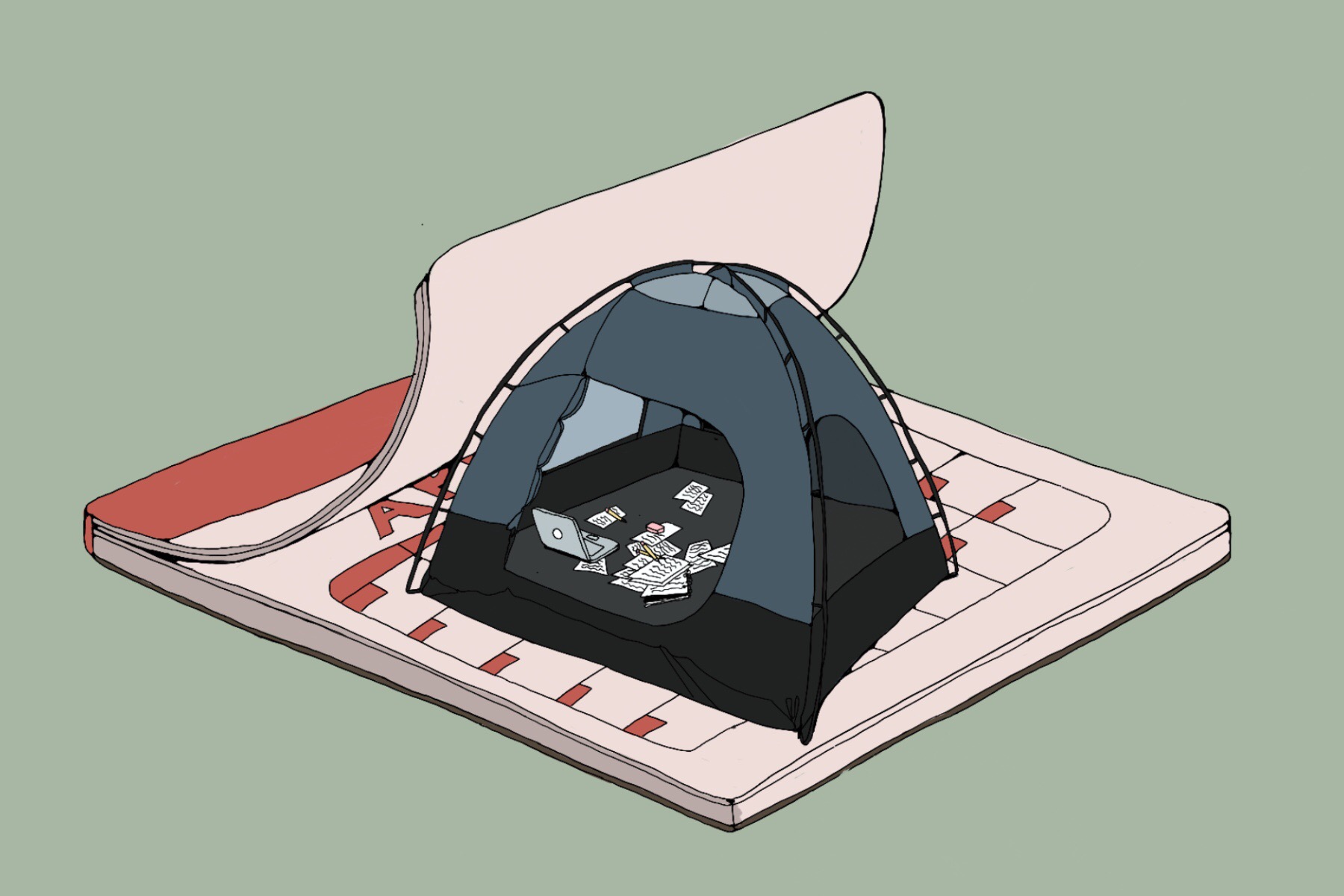Many win NaNoWriMo — National Novel Writing Month — every season and many, unfortunately, don’t. After one failed attempt, it can be easy to lose heart and give up entirely. Even if winning seems unlikely, trying it is still worth the effort, and any writing is good writing when it comes to practice. In fact, Camp NaNoWriMo — basically, a virtual writing retreat — is the perfect practice before November comes around, as goals are tailored to each individual’s preference. If you’re on the fence about dusting off the book files on your laptop this July, don’t be, and give Camp NaNoWriMo another try.
Camp NaNoWriMo officially began July 1, so it’s already been a few days. Even though the month’s already started, it’s still possible to get onboard and finish strong. Catching up for the few days missed is possible, often made up simply by writing a few hundred words extra for a week or so, and the extra effort only makes victory more rewarding. If making up the missed days seems like an insurmountable task, simply adjust the month’s goal to account for the missed days. Above all, don’t let the lost time stand in the way of progress.
The original NaNoWriMo takes place in November, and the goal is 50,000 words. In the two newer “camp” versions, though, the goal is flexible, and the camps are in April and July. The flexible goal came about for many reasons — one being that having the option to lower the goal makes the camps perfect for training. Completing 30,000 or 40,000 words in a month may provide the practice needed to give 50,000 words a go in November. Failing the November NaNoWriMo in the past doesn’t mean that you’ll never succeed. A slightly lower goal may be just the thing to get back on the horse that threw you a year or two back.
Conversely, after years of 50,000 words every November, adding to the goal may provide a new challenge. In the case of some writers, 50,000 words in a month has nearly lost its luster. These are writers gifted with quick fingers and minds, and who can conquer the call of NaNoWriMo’s traditional number with enthusiasm and ease. If a tougher fight interests you, Camp NaNoWriMo provides a place to up the challenge.
When writing much on a regular basis isn’t an option, using Camp NaNoWriMo to write some amount is still helpful in future writing endeavors. Thinking of the camp as training for the November 50,000 words may perfectly fit some, but for others, 50,000 may simply not be a doable amount. In those cases, another goal will ease the struggle enough to continue writing. Often, the problem isn’t that these writers are uninspired or unmotivated, but that they simply aren’t at a place in life where such a burden on their free time is possible. Giving up is tempting, but there’s always a better option than admitting defeat. Above all, writing at all is the true goal. Any words written take an aspiring author closer to a first manuscript.
Of course, the drafting process is different for everyone. In some cases, the first draft flies by and the most time is spent in editing. For others, it’s the first draft that takes the longest, and edits are easier to work out. People in those situations may find Camp NaNoWriMo to be more in line with their needs, as the adjustable goal means they can set their own pace according to their own writing style. If you’ve tried NaNoWriMo before and didn’t make it all the way, it’s possible you fall into the second category. That makes you no less of a writer, nor any less likely to succeed. Ask yourself what a realistic goal might be, and give Camp NaNoWriMo another chance this July. There’s still time to get back on that horse.
Word count isn’t the only thing that can be adjusted in Camp NaNoWriMo. Goals can be set for lines or pages written or for minutes or hours spent writing. Screenplay writers find the changes make their writing much easier to track, and so many who forgo the November challenge eagerly take part in the April and July camps. The ability to set goals by time rather than words is also ideal for editing, since the quality of words is just as important as the quantity. In fact, many use the April and July camps to continue the story they began in November, resulting in three bursts poured into a single project.
For some people, November is just not a good time to try something so intensive. Whether it’s due to the holidays or upcoming finals, these are people who want to hone their writing but can’t afford the time during the month. Camp NaNoWriMo presents the perfect opportunity. The benefits of the online experience remain intact in the form of forums called “cabins” and, of course, the signature NaNoWriMo stat tracker. After all, why let a busy November keep you from writing when April and July are just as good?
Those who participate in NaNoWriMo often find that it embodies a sort of self-care initiative. Writing so many words in a single month can prove quite a task, and carving time out of each day for it can be half the problem. Trying out NaNoWriMo requires a great level of commitment on the part of the author as well as support from loved ones. It’s something you do for yourself and can be a way to prioritize self-care.
Another aspect of self-care is cultivating determination and honing willpower. For writers, this is vital. Deadlines will always loom, and distraction is always imminent. By committing to a single goal over the course of a month, writers learn how to rise to their own challenges and stick to their own goals. This perhaps goes doubly for those who have failed in previous years and decided to try again anyway. The road to authorship is not an easy one, and rejections and failures are part of the job description. Publication can only come to those who are willing to get back up after being rejected.
Whether or not 50,000 words in a month is possible for you, Camp NaNoWriMo is still an option. If you’ve tried this challenge in the past and didn’t quite make it, don’t see that as a reason to abstain forever. Your muses are calling. Your laptop is waiting. Camp NaNoWriMo is yours for the winning, if only you’ll give it a try.
















